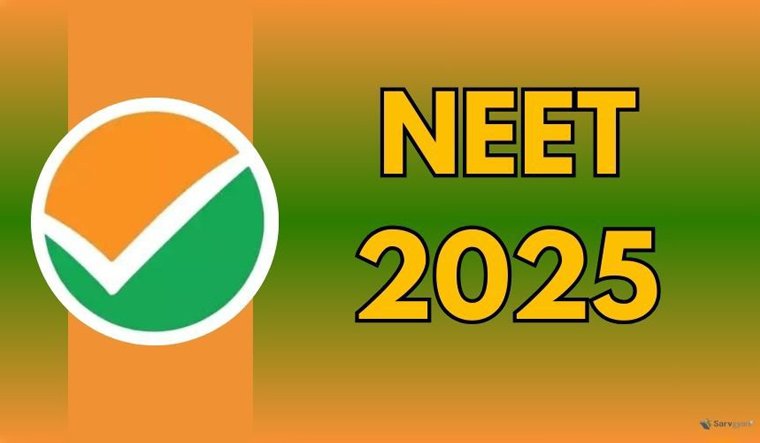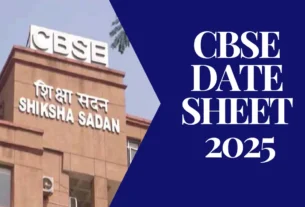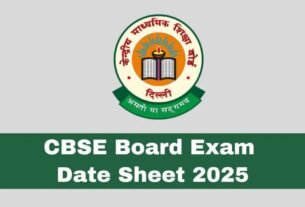The NEET UG 2025 exam is a pivotal milestone for aspirants looking to secure a position in medical colleges across India. As the exam approaches, it is essential for students to remain cognizant of the key dates associated with the examination process. The application release date is typically the first significant date that students should watch out for, as it sets the stage for the entire admission cycle. Based on previous trends, the application form for NEET UG is expected to be available by the first week of January 2025.
Following the release of the application form, aspiring candidates must prepare to complete their submissions within a designated timeframe. The last date for submission is crucial for candidates to note, as it marks the end of the application period, usually falling around the last week of January 2025. Missing this deadline can have serious implications on a student’s ability to sit for the exam. Therefore, meticulous planning and timely submission are paramount during this phase.
The NEET UG 2025 exam date is tentatively scheduled for the third week of May 2025, a date which should be marked on every aspirant’s calendar. It is vital that students begin their preparation well in advance, taking into account this timeline. Furthermore, results are generally announced within a month of the exam, with expectations for NEET UG 2025 results to be released by mid-June 2025.
In conclusion, staying updated with official notifications from the National Testing Agency (NTA) regarding NEET UG 2025 is essential for all candidates. Key dates such as the application window, exam day, and result announcement significantly influence preparation strategies and overall planning for aspiring medical students.
Comprehensive Syllabus for NEET UG 2025
The National Eligibility cum Entrance Test Undergraduate (NEET UG) serves as a crucial assessment for aspiring medical students in India. It is essential for candidates to have a thorough understanding of the comprehensive syllabus laid out for the NEET UG 2025 examination. The syllabus can be categorized into three primary subjects: Physics, Chemistry, and Biology, each encompassing a range of important topics and chapters that require dedicated attention.
In Physics, candidates must focus on fundamental concepts such as Mechanics, Thermodynamics, and Waves. Important chapters include Motion in a Straight Line, Work, Energy, and Power, as well as Sound. Understanding these concepts not only aids in conceptual clarity but also develops problem-solving skills essential for success in the exam.
Chemistry is equally significant, comprising both Physical and Organic Chemistry. Key topics include Mole Concepts, Chemical Bonding, and Equilibrium, along with Organic compounds and their reactions. A strong grasp of these topics is vital, as they form the foundation for more advanced studies in medical science.
Biology stands out as a pivotal subject in the NEET UG syllabus, encompassing topics related to Plant and Animal Physiology, Genetics, and Ecology. Candidates should prioritize chapters like Cell Structure, Plant Reproduction, and Human Anatomy for a holistic understanding of biological processes. This subject often carries substantial weight in the assessment, making it crucial for students to allocate appropriate study time.
To maximize efficacy, candidates should employ a well-structured study plan. This plan should include regular revisions, practice of previous year question papers, and self-assessment exercises. Allocating specific time slots for each subject can enhance retention and understanding, thereby boosting confidence leading up to the NEET UG 2025. Ultimately, a comprehensive grasp of the syllabus not only prepares candidates for the exam but also sets a robust foundation for their future in the healthcare field.
Previous Year Question Papers: A Study Resource
Practicing previous year question papers is an essential strategy for students preparing for the NEET UG examination. These papers serve as a valuable study resource, allowing candidates to familiarize themselves with the exam’s structure and the types of questions typically posed. By engaging with these questions, students can develop a thorough understanding of the subject matter, identify key topics that are frequently covered, and recognize areas that may require further revision.
One significant benefit of solving past papers is the insight they provide into the exam pattern. NEET UG consistently follows a structured format, and prior papers often reflect this consistency. Analyzing these documents helps students anticipate the distribution of marks across different sections, including Physics, Chemistry, and Biology, which in turn facilitates effective study planning. Additionally, as students encounter varied question types, including multiple-choice and assertion-reason questions, they can develop familiarity and fluency, crucial for successfully tackling the exam on test day.
Time management is another vital skill nurtured through the practice of previous year question papers. Many students find that simulating exam conditions by timing their sessions can lead to improved performance. By practicing under timed circumstances, candidates cultivate the ability to allocate their time effectively, ensuring that they can address all questions within the allocated duration. This simulation not only boosts confidence but also reduces anxiety, a common hurdle faced on exam day.
Students can find previous year question papers through various resources, including official NEET websites, educational platforms, and coaching institute materials. To maximize the effectiveness of these papers, it is advisable to adopt study techniques such as reviewing solved solutions, identifying recurring mistakes, and discussing challenging questions with peers or mentors. These approaches can significantly enhance comprehension and retention of the subject material, making previous year question papers an invaluable aspect of NEET UG preparation.
Other Key Details for NEET UG 2025 Aspirants
The National Eligibility cum Entrance Test (NEET UG) serves as a pivotal examination for aspiring medical students in India. For candidates preparing for the NEET UG 2025 examination, understanding essential information regarding registration procedures, eligibility criteria, and preparation strategies is crucial for a successful outcome.
To begin with, registration for NEET UG 2025 typically takes place online through the official National Testing Agency (NTA) website. Aspirants must ensure that they have all necessary documentation, including academic records and identification, readily available when completing their application. Submitting the application on time is critical, as late entries may not be accepted. Additionally, candidates should remain vigilant about notifications regarding the examination date, which will be announced well in advance.
Eligibility for NEET UG 2025 requires candidates to fulfill specific academic criteria. Generally, candidates must have completed their 10+2 education with Physics, Chemistry, and Biology as core subjects, obtaining a minimum percentage as delineated by the NTA. Furthermore, subjects like English may also be required. It is advisable that candidates consult the official information brochure for a comprehensive list of eligibility requirements and ensure that they meet them before applying.
Effective preparation involves a thorough understanding of the syllabus, which includes a range of topics from the sciences. Utilizing previous year’s question papers can provide candidates with insight into exam patterns and frequently asked questions. Moreover, investing in well-structured study materials, including reference books and online resources, can significantly enhance one’s grasp of the concepts.
It is common for candidates to have queries regarding exam logistics, subject stress, and preparation strategies. Engaging in study groups and attending coaching sessions can provide peer support and expert guidance. By addressing these concerns proactively, candidates can navigate the NEET UG preparation process with greater confidence.





